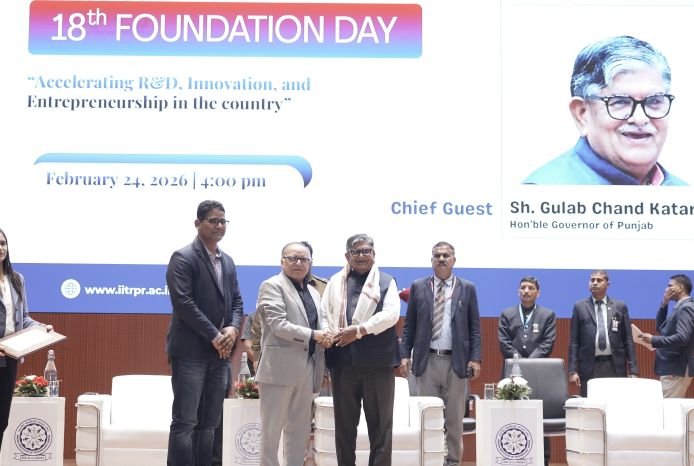
6 Cs: – Collaboration- Communication- Creativity- Cultural Competencies- Critical Thinking – Complex Problem Solving besides digital fluency, will be the defining skills– the new superlative skills
The Innovation Superclusters Initiative of Canada introduced in 2017 to create Canada’s most promising five superclusters at scale to create jobs, boost export economy and increase Canada’s GDP by more than $ 50 billion over next 10 years, is exciting to hear about as it is also comes as a relief to those worrying about solving precarious challenges coming up before the humanity. University of Saskatchewan (U of S) is a pivotal partner in Canada’s agricultural supercluster—Protein Industries Canada and in that role as a leading agriculture university will have many lessons and perspectives to share all through this journey.

Therefore, after Prof Peter Stoicheff, President, University of Saskatchewan concluded his keynote address on ‘The Crucial Role of Universities in innovation: A Canadian Perspective’ that he gave at the FICCI 15th Higher Education Summit in New Delhi on November 28, most of the people who listened to him didn’t stop talking about it for it sounded so believable . Prof Stoicheff didn’t go into specifics of the protein supercluster covering Alberta, Saskatchewan and Manitoba which will use plant genomics and novel processing technology to increase the value of key Canadian crops, such as canola, wheat and pulses, but did use to paint the picture of futuristic universities.
According to him Universities are now needed more than ever because of their changing role in new economy driven by new technologies and disruptions. “Universities have enormous impact on increasing human capital and innovation. For this very reason, universities will impact prosperity of nation and also provide accurate perspective like good journalism. Other than oil & gas, universities are big enterprises,” he said.
There is a greater need of training by universities in labor markets as jobs shift to higher skills level. It is estimated that 40% jobs will disappear in next decade due to automation and more will be created, so there will be no net loss but people will need to be trained. Similarly, a creative challenge exists because 85% jobs of next decade haven’t been yet invented. As against earlier careers that last a lifetime, career lifespan will be of half a decade. “Skilling will be become a priority and people will come back to university to get upskilled and it will large consequences for program. Micro credit courses, small certifications, transferable skills for shorter jobs will be a reality soon,” Prof Stoicheff said. Study abroad opportunities will be crucial while work related learning will become the norm. “Bringing in the learning from employment to classroom will be important for learning experience,” he said.
At the same time, universities will have to pursue cutting edge research in AI, Big Data, Advanced Manufacturing even while looking at bigger global challenges especially due to stressed resources from climate change and other environmental issues. “Research must be international in scope, interconnected and not by single university or country but by many to tackle global challenges. Prof Peter Stoicheff did refer to India –Canada collaboration under IRDC where both countries are working jointly in several areas.
Speaking about interdisciplinary research need, he said that today’s researcher needs understanding of a variety of discipline to face the world. “Traditional science, humanities and social sciences, are now regarded important in research alongside STEM. A number of successful new business leaders have degrees in these courses says it all.”
Ethical issues in medicine, law, business, IT, public policy, urban planning, cultural literacy, design thinking etc in globalization age are also important and make as great a difference as technology. According to Stoicheff universities of this century will have to be looking outward and listening carefully to the industry, country, local region, SMES, startups , communities and will have to respond to need of social innovation. And works of student will need to include this. And the 6Cs listed (above) by Prof Peter Stoicheff will be needed to do all this.
By Autar Nehru






